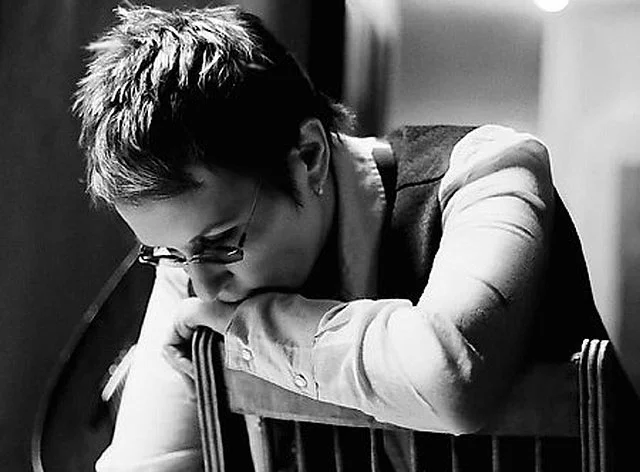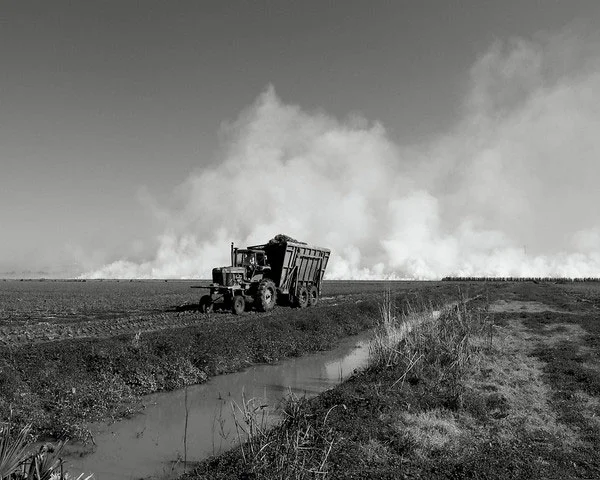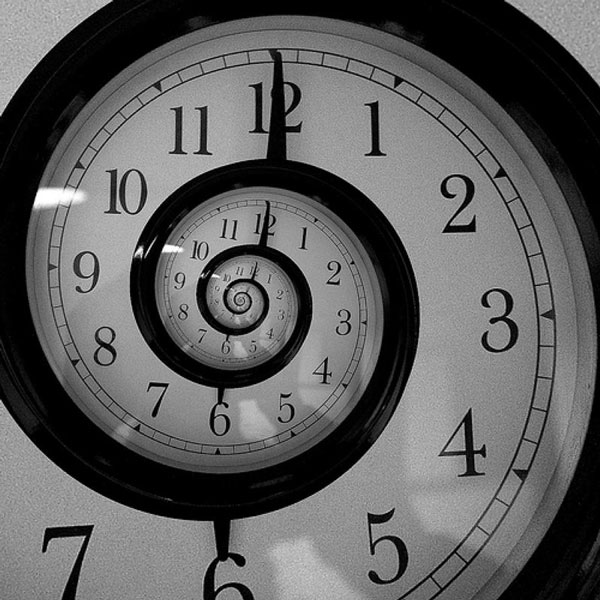This is a picture of orphaned babies in St. Vincent's from the New Orleans paper, 1962. Such a bizarre thing to call us orphans—our parents were alive and well, just not married to each other, thats all. The truth is that we were not orphans, but we were orphaned. Back then, unmarried women were shamed and often forced by their families into giving their babies away. I am the baby way in the back, the circled baby is my adoptive cousin, adopted at around the same time as me.
Blood Is Blood
(by Mary Gauthier and Crit Harmon)
Clouds are spreading like bruises on the evening sky I walk the streets alone again tonight It starts to rain still I search each passing face Blood is blood and blood don’t wash away Blood is blood and blood don’t wash away
When I was a child they told me she loved me too much She didn’t keep me ‘cause my mama loved me too much She left without a trail she left without a trace But blood is blood and blood don’t wash away Blood is blood and blood don’t wash away
I got a heart that’s ripped I got a soul that’s torn I got a hole in me like I was never born
Blood is thicker than water Blood is bound by God I don’t know who I am I don’t know who I’m not I don’t know my name I can’t find my place
Blood is blood and blood don’t wash away Blood is blood and blood don’t wash away Blood is blood and blood don’t wash away Blood is blood and blood don’t wash away I walk the streets alone again tonight
When I began writing songs I heard a whisper, way in the back of my mind, that someday I’d be called to write a record called The Foundling, and explore in a series of songs what my deepest inner world felt like. Creativity is prescient in that way, it seems to be one step ahead of me at all times, and I’m always just trying to catch up.
My life story was aching to come out of the shadows, and my subconscious was guiding me to it, to begin healing and reconciliation with truth, through my work as a songwriter.
See, I was adopted.
I feared losing my family if I asked my origins. I did not dare ask to ask where I came from. This is not an uncommon fear among adoptees. Many of us decide wait till our adoptive parents are dead to search for our original families, our original identities. The fear of losing our adoptive family, and of appearing ungrateful or disloyal keeps us from searching earlier, from asking hard questions.
But my subconscious was busy trying to help me put the pieces of my fractured past together as best it could. I needed to claim my truth to fully grow up, to be a whole, integrated person, to become truly real—and let go of the weight of not knowing, walk lighter, and be useful to others.
As hard as it is to explain, I deeply believe in this mysterious impulse for the mind to heal itself. Following it has led me down beautifully twisted roads, led me to the songs I sing, and given me this creative life I love so much.
As hard as it is to believe, the truth of own story was not available to me until I wrote the songs on The Foundling. Writing helped me make sense of things that had haunted me from the day I was born.
It took me a decade as a songwriter before I was able to tackle this project. It took me another two years of focused writing to complete the songs. It was by far the hardest work I’ve ever done as an artist—hard emotionally, physically and spiritually. I had to come face to face with some damn scary monsters. I had to make myself sit at my desk for 10 to 12 hours at a time, week after week. I had to research trauma, childhood trauma, and adoption trauma, and come face to face with my own denial of the effects of what had happened. But the inner work I was doing in therapy coincided with the work I was doing as an artist, and The Foundling songs crept up and out, cracking the floorboards of my fear, one at a time. I kept walking, and writing.
The truth of my life and the truth in my work collided.
What I learned was that my relinquishment by my birth mother on the day I was born, my year-long stay at the orphanage on Magazine Street in New Orleans, and my subsequent adoption into a family I never fully attached to were all traumatic events. And trauma needs to be dealt with.
The time was right for me to put the pieces together, as I wrote The Foundling song cycle I began to heal from the inside out—a classic case of art healing the artist. I look back on it now and wonder how I did it, or rather, how it did me. The mystery remains intact, even as I try now to explain.
The song “Blood Is Blood” is the centerpiece of The Founding cycle. It vibrates with the intensity and angst of an adoptee in full-blown identity crisis. Using John Lennon’s Mother as a guide, I let the muse walk me to the edge of my knowing till I faced the abyss, the dropping off place—the place I’d tried to avoid for 46 years.
With the muse guiding me, John Lennon’s courage encouraging me, my work in many years of therapy steering me, and my adoptee friends holding me, I found the strength to face what happened when my mother left me behind forever, on that frightful day, the day I was born.
Seeing it, knowing it, becoming aware of it, owning it—this is where all healing truly starts. And after a while, telling it moves the healing outward.
This song started with a couple of lines and a melody sent to me by my co-writer. Both the title and the repeated riff were in the clip he sent me, and I knew something great was there when I heard it. I just needed to carry it home.
I’d been reading a lot of books on adoption and trauma, and had become saturated in the work of Betty Jean Lifton, who to this day is my favorite writer on the psychology of adoption. BJ was an adoptee herself, a brilliant thinker and writer, and married to Robert J Lifton, Professor of Psychiatry at both Harvard and Yale, and the foremost expert on the psychological effects of war. He is the author of several groundbreaking books on the subject, including The Nazi Doctors.
Robert championed BJ as she did her own groundbreaking work on adoption trauma, and to this day her work on the psychology of adoption remains unsurpassed. She is an adoption reform hero, and I never could have written The Foundling without her. I got to meet her once when she came to a show I played at Joe’s Pub in NYC with the songwriter and fellow adoptee Diana Jones, who was her close friend. It was an honor to hug BJ Lifton—she was a kind, beautiful, brave and brilliant woman.
In addition to her work on adoption, she wrote many other wonderful books, including The King of Children, a biography of Janusz Korzack, the Heroic Polish Jewish Doctor who ran an orphanage during the war, and died with his orphans at the hands of the Nazis at the Treblinka extermination camp.
The song “Blood Is Blood” tells the story of the existential hole left inside of an adoptee after the loss of original family and heritage to the crucible of closed adoption. This loss is traumatic, but it is not yet generally understood. Often times, we adoptees don’t even know the loss/trauma is there because of a split in our psyche’s that shuts us out of entire rooms in our brains. Trauma is fundamental in adoption (especially closed adoptions where adoptees are given no knowledge of their heritage), but we’re just beginning to understand the ramifications of it. Certainly there is a direct link between childhood trauma and addiction as well as a variety of attachment disorders and other struggles, but we are in the infancy of understanding how this all plays out.
“Blood Is Blood” is both my story, and the story of closed adoption, an in-your-face song railing against the pain, secrets and lies of closed adoption. I’d say it’s probably the angriest and most angst-ridden song I’ve ever written.
It amazes me that in America, to this day, adoptees by the millions are denied access to our own original birth certificates. In fact, whenI was writing this song in 2014, only 6 states had opened or partially opened birth records. Think about that! Millions of adopted adults in America are denied access to our own birth certificates. They are sealed documents, locked away from us forever in the name of protecting us from…our identity?
I was told as a child that my mother loved me so much that she gave me away. I was told she “loved me too much to keep me.” A child cannot make sense of this, but even as an adult it makes my head swim. Loved me too much to keep me? I know my parents were trying to tell me that my mother could not care for me for reasons we never got in to, that she was so unselfish and generous that she gave me away so that I might be better cared for. The problem with this (aside from the fact that it’s probably not true) is that it forever equates love with abandonment, and the fear of abandonment has haunted me my entire life.
The antiquated laws that permanently seal birth certificates desperately need to be overturned, but the going is slow and the opposition is well funded. The fight for truth and justice in this arena continues. I hope this song helps, somehow. It sure helped me.
Order a copy of Live at Blue Rock HERE.












